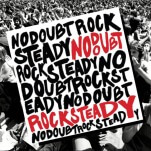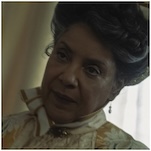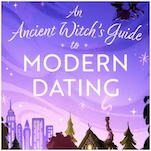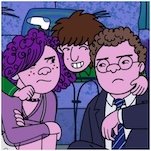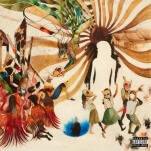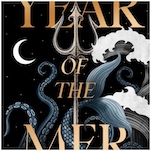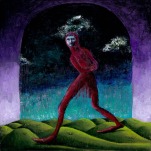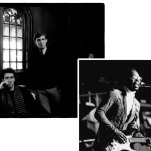The Curmudgeon: Looking For an Honest Song about Death
Images courtesy of John Byrne Cooke Estate/Getty, Smithsonian Folkways Recordings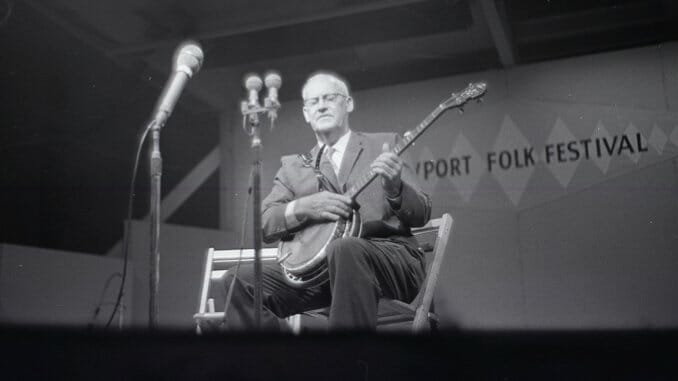
My mother died in her own bed early in the morning of Sunday, April 11. This was entirely expected; she was 93, and her mind and body both had been failing for years. I wasn’t there when it happened, but I had been at her bedside the week before, trying to talk her down from the terrors when she woke up in the middle of the night. “Have I died already?” she cried out in her confusion. No, not yet, we told her.
And yet for all the warnings and preparations, it did make a difference when death finally arrived. One day she was there, and the next day she wasn’t. One day I had a mother, and the following day I didn’t. And it’s that absolute absence that’s the hardest thing to accept.
Whenever I’m in crisis, I turn to song for clarity and solace. It helps just to know that someone else at some time and in some place felt the way I do now. That doesn’t wash away the pain, but it does crack open the loneliness. It doesn’t change my feelings, but it lets me know those emotions are neither bizarre nor fatal. Seeing the situation through someone else’s eyes reveals aspects that I could never perceive through my own pain-clouded vision.
Songs have helped me get through romantic heartbreak, physical breakdowns and political nightmares. But when I went looking for songs that might help me through my mother’s death, I found them shockingly hard to find.
Oh, there are thousands of songs about death, even about the death of a parent. The internet yields countless lists of such songs. But almost all these songs have nothing to do with my experience of death: the irreducible absence it creates. In fact, most of these songs want to persuade me that that absence isn’t even real, that the recently departed are now in a better place, that we will meet again by and by, that the circle will be unbroken.
Those are nice thoughts, the product of good intentions, but they’re untrue. The dead are not in a better place; we will never meet again, and the circle is irreparably broken. The sentiments in these songs not only contradict every aspect of my encounter with death, but by denying my profound feeling of absence, they also insult me.
Don’t get me wrong. When I’m not in crisis, I can enjoy a song such as the Carter Family’s “Will the Circle Be Unbroken,” the Black gospel hymn “We’ll Understand It Better By and By” and the old Irish-American vaudeville tune “Danny Boy.” All three boast gorgeous melodies and all extend a generous feeling of comfort to the sorrowful. But they all negate my actual experience of death and are thus worse than useless in a situation like this.
Most modern songs about death are merely variations on this same theme. Vince Gill’s “Go Rest High on That Mountain,” Eric Clapton’s “Tears in Heaven,” Luther Vandross’ “Dance with My Father,” Mariah Carey’s “One Sweet Day,” The Band Perry’s “If I Die Young,” and the other songs that show up on those internet lists all respond to the anguish of absence by pretending it’s not real. That’s not much help if the reality of absence is what you’re trying to get a handle on.
So where are the songs that unflinchingly confront the terrible vacancy that death leaves behind? Where are the songs that acknowledge the terrifying finality of death? Because if that’s what you’re feeling, those are the songs you need.
Those songs exist, but you won’t find them under the spotlights of popular culture. You have to hunt for them in the shadowy corners. The older the corner, the better luck you’ll have. Ancient blues and folk songs never had to worry about finding a place on a radio station selling commercials, so they didn’t have to pull their punches when talking about death.
To hear the deep dread that comes with dying in the real world, there’s no one better than Dock Boggs, the Virginia coal miner who captured the true terror of death in his recordings from the 1920s. “Sugar Baby” is the moaning of a husband who has just buried his wife. Over the prickliest of banjo parts, Boggs’ stony baritone acknowledges the state of things: “Laid her in the shade, gave her every dime I made, what more could a poor boy do? … Got no sugar baby now.” There’s no false hope of a later reunion, just the bitter truth that the red rocking chair is empty and will never rock again.
-

-

-

-

-

-

-

-

-

-

-

-

-

-

-

-

-

-

-

-

-

-

-

-

-

-

-

-

-

-

-

-

-

-

-

-

-

-

-

-

